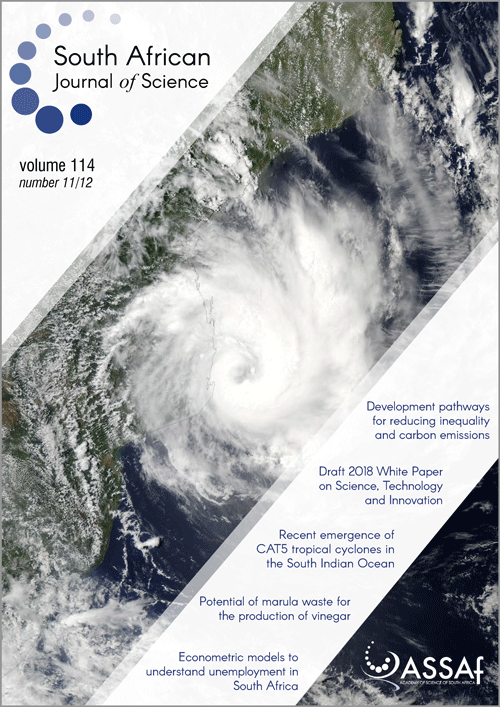Modelling the length of time spent in an unemployment state in South Africa
DOI:
https://doi.org/10.17159/sajs.2018/4313Keywords:
unemployment persistence, unemployment duration, non-parametric, duration dependenceAbstract
The deteriorating global economic conditions have worsened the unemployment situation, especially among the youth in sub-Saharan Africa. Structural factors such as the length of time spent in unemployment and job sustainability have a considerable effect on the persistence of unemployment for an individual. Non-parametric models were fitted to data consisting of 4.9 million unemployed South Africans to determine the duration dependence and probabilities associated with unemployment. The prospect of finding employment depends on unemployment duration where the rate of finding employment decreases as the length of time in unemployment increases. On average, nemployment exit is observed at lower rates, which translates to people remaining unemployed for longer durations. The human capital of the unemployed deteriorates when more time is spent in an unemployment state, thus making one less employable. Based on the Markov chain processes results, the created jobs are less sustainable because the employed transition back to an unemployment state over time. These findings suggest that the problem of unemployment in South Africa is multidimensional.
Significance:
- The structural factors associated with unemployment should be modelled to address the unemployment situation in South Africa.
- The probability of remaining unemployed increases as the length of stay in unemployment increases.
- The lengthy unemployment duration results from a low rate of exiting unemployment.
Published
Issue
Section
License

All articles are published under a Creative Commons Attribution 4.0 International Licence
Copyright is retained by the authors. Readers are welcome to reproduce, share and adapt the content without permission provided the source is attributed.
Disclaimer: The publisher and editors accept no responsibility for statements made by the authors
How to Cite
- Abstract 1402
- PDF 1488
- EPUB 240
- XML 428












.png)